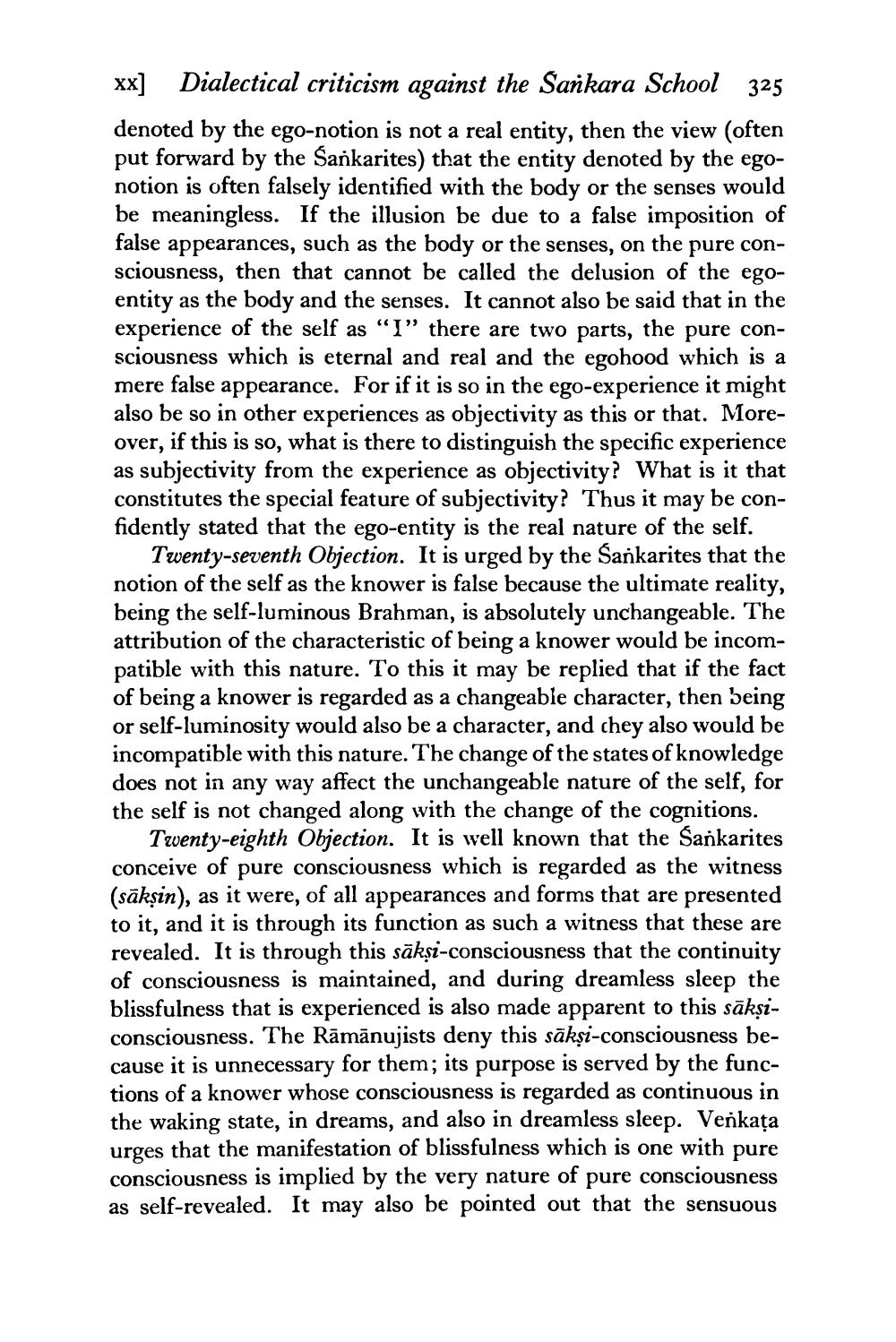________________
xx] Dialectical criticism against the Sankara School 325
denoted by the ego-notion is not a real entity, then the view (often put forward by the Sankarites) that the entity denoted by the egonotion is often falsely identified with the body or the senses would be meaningless. If the illusion be due to a false imposition of false appearances, such as the body or the senses, on the pure consciousness, then that cannot be called the delusion of the egoentity as the body and the senses. It cannot also be said that in the experience of the self as "I" there are two parts, the pure consciousness which is eternal and real and the egohood which is a mere false appearance. For if it is so in the ego-experience it might also be so in other experiences as objectivity as this or that. Moreover, if this is so, what is there to distinguish the specific experience as subjectivity from the experience as objectivity? What is it that constitutes the special feature of subjectivity? Thus it may be confidently stated that the ego-entity is the real nature of the self.
Twenty-seventh Objection. It is urged by the Sankarites that the notion of the self as the knower is false because the ultimate reality, being the self-luminous Brahman, is absolutely unchangeable. The attribution of the characteristic of being a knower would be incompatible with this nature. To this it may be replied that if the fact of being a knower is regarded as a changeable character, then being or self-luminosity would also be a character, and chey also would be incompatible with this nature. The change of the states of knowledge does not in any way affect the unchangeable nature of the self, for the self is not changed along with the change of the cognitions.
Twenty-eighth Objection. It is well known that the Sankarites conceive of pure consciousness which is regarded as the witness (sākṣin), as it were, of all appearances and forms that are presented to it, and it is through its function as such a witness that these are revealed. It is through this sākṣi-consciousness that the continuity of consciousness is maintained, and during dreamless sleep the blissfulness that is experienced is also made apparent to this sākṣiconsciousness. The Rāmānujists deny this sākṣi-consciousness because it is unnecessary for them; its purpose is served by the functions of a knower whose consciousness is regarded as continuous in the waking state, in dreams, and also in dreamless sleep. Venkata urges that the manifestation of blissfulness which is one with pure consciousness is implied by the very nature of pure consciousness as self-revealed. It may also be pointed out that the sensuous




